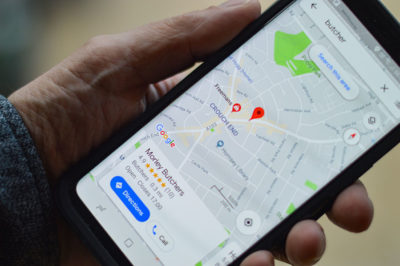- Originally Published on October 21, 2024
How to Spot Fake Google Reviews (& What To Do About Them)

Get Help Right Away.
TRANSCRIPT
Introduction
If you want to learn how to protect yourself and others from making the wrong choices because of fake online reviews, keep watching.
I’m Aaron Minc, attorney and founder of Minc Law, the nation’s leading law firm for combating online defamation and fake reviews.
In today’s digital marketplace, online reviews can literally make or break a product, service, or business. But what most people don’t know is that there are a lot of online reviews that are fake.
In this video, I’ll be doing a deep dive into fake online reviews, showing you how to spot them and what can be done about them when you do.
Let’s get started.
Types of Fake Reviews
Fake Positive Reviews
Fake positive reviews are typically generated by businesses directly or by a third party the business pays to create and publish.
Businesses publish fake reviews because they boost the business’s reputation, help attract more customers, and create the illusion that their services or products are of higher quality than they actually are.
Legal Implications of Fake Positive Reviews
Legally speaking, fake positive reviews are not only unethical, they are illegal. They are a form of false advertising and violate consumer protection laws.
Businesses caught posting fake positive reviews can face:
- Bans from review platforms
- Hefty fines and penalties from the FTC
- Lawsuits
- Severe reputational damage
Fake Negative Reviews
Fake negative reviews are false claims posted about a business with the intent to harm its reputation, decrease its customers, and make it seem like its services or products are worse than they really are.
Fake negative reviews do not express genuine consumer experiences or opinions.
Common Sources of Fake Negative Reviews
- A business might post a fake negative review about a competitor to discourage customers from buying from them.
- Consumers may post fake negative reviews to try to get refunds they aren’t entitled to or to exact revenge against a business for personal reasons.
Legal Action Against Fake Negative Reviews
Fake negative reviews are civilly actionable as defamation. Businesses hit with fake negative reviews can pursue legal action against the individuals who posted them for monetary damages and court orders to get the reviews removed.
How to Spot Fake Reviews
1. Overly Generic Language
Fake reviews often use vague phrases or give empty praise like “Great service!” without any specific details. Authentic reviews typically mention specific things they liked or disliked about a product or service.
If a review is generically written and could easily apply to any business or product, it’s a red flag that it might be fake.
2. Repetitive or Inauthentic Language Patterns
Pay attention to similar or inauthentic language across multiple reviews. If you notice repetitive phrases or words in different reviews, it’s possible they were written by the same person or generated by an AI bot like ChatGPT.
AI-Generated Reviews
If you notice the same compliment or phrase appearing repeatedly, or if a bunch of reviews consistently use three adjectives in a row, that’s a red flag that the review might have been generated using AI.
3. Timing and Frequency of Reviews
A sudden influx of positive or negative reviews in a short period of time is a big red flag. It can indicate a coordinated effort to either boost or damage a business’s reputation.
The greater the number of reviews in a short period, the more likely it is that the reviews could be fake.
4. Reviewer Profile and History
Before trusting a review, check the reviewer’s profile and review history. For example, if a reviewer’s account is brand new and they’ve never reviewed any other businesses, this can be a red flag.
Fake Accounts
It’s common for fake review accounts to have no history of publishing other reviews, or they may have made their history private. The more profiles that display this behavior, the higher the likelihood the reviews are fake.
5. Inconsistencies in Review History
While a user having a history of reviews is generally a good thing, you should still look for inconsistencies.
Multiple Businesses in Different Locations
Third-party services that post fake reviews often use the same accounts to publish fake reviews for multiple businesses. For example, if someone reviews businesses in wildly different locations that don’t make sense—like a vet in Australia and a criminal defense lawyer in Sandusky, Ohio—that’s a big red flag.
What to Do If You Encounter Fake Reviews
Step 1: Gather Evidence
Take screenshots and record the URL where the fake review is posted. This is crucial, as reviews can get taken down, deleted, or changed. If anything happens later, you’ll need evidence of what was originally posted to support your claims or reports.
Step 2: Report the Review
Report the fake review to the platform it was published on. You can also report the activity to the FTC by going to their website.
Step 3: Seek Legal Assistance
If the fake reviews are causing significant harm or competitive disadvantage to your business, getting professional legal advice and support is key.
At Minc Law, we help guide businesses on their options, including:
- Legal actions to remove defamatory content
- Identifying anonymous accounts
- Holding perpetrators of fake reviews accountable
The Importance of Being Proactive
The most important takeaway for businesses is to be proactive in protecting their reputation.
Strengthening Your Online Presence
Work on strengthening your online presence by encouraging customers to leave reviews and staying active on social media.
Handling Fake Reviews
Dealing with fake reviews can be challenging, but with the right approach, it can be manageable. Whether it’s through direct engagement, platform reporting, or legal action, you have options to protect your business’s reputation.
Conclusion
If you’re unsure about the best course of action, seeking professional advice is the next best step.
If you found this video informative and helpful, please comment below and share your experiences or ask any questions you might have about handling fake reviews.
At Minc Law, we’ve dealt with countless cases of fake reviews and online defamation, providing our clients with peace of mind and the results they deserve.
You can contact us by calling the number on the screen or filling out the contact form on our site. Don’t forget to subscribe!
Once again, I’m Aaron Minc from Minc Law. Thank you for watching, and I will see you in the next video.
END OF TRANSCRIPT
This page has been peer-reviewed, fact-checked, and edited by qualified attorneys to ensure substantive accuracy and coverage.



